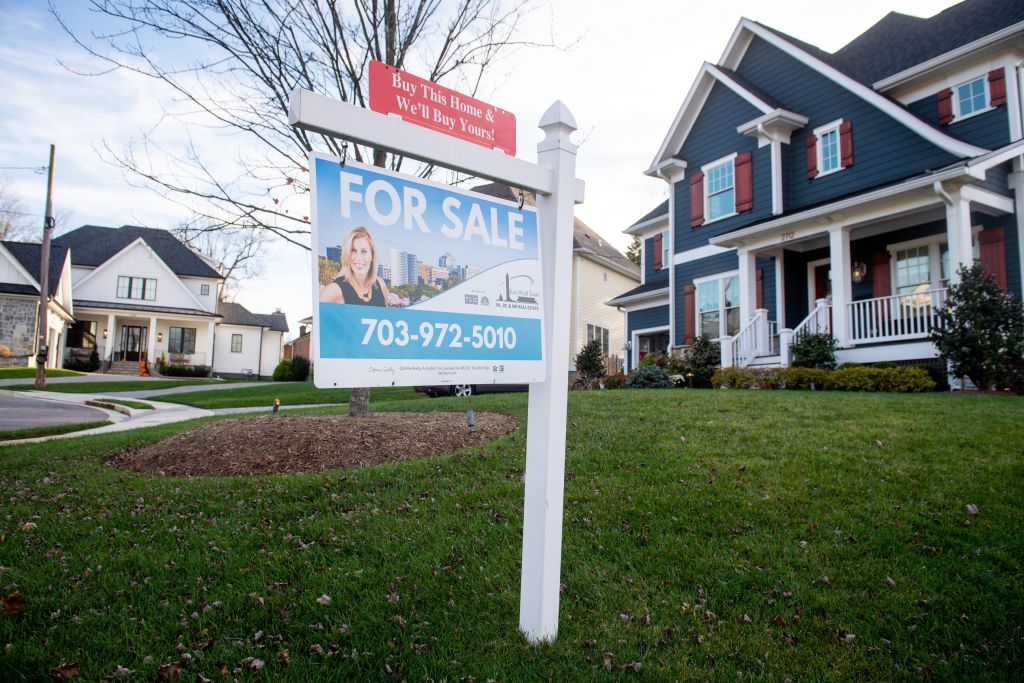In the waning months of the 2020 campaign, President Trump cast himself as the defender of the suburbs. It didn’t work. Suburban voters made Joe Biden president. But although Trump lost that election, the pro-suburb talking points he popularized didn’t go away. Last month, after California legalized duplexes statewide, the outrage came roaring back.
Tucker Carlson fumed that soon ‘drug-addicted vagrants’ would be terrorizing innocent American suburbanites.
Right-wing Twitter personality Auron MacIntyre perceived a plot to destroy the wealth concentrated in single-family homes and force everyone to live in the ‘urban decay’ of ‘the favela’.
American Mind editor Spencer Klavan compared it to the liquidation of the kulaks — Stalin’s campaign of confiscations, deportations, and massacres targeting Russian yeoman farmers.
If housing reform means the federal government forcibly imposing Section 8 high-rises on suburban communities, I’m against it. If it means more townhouses and rowhouses, more duplexes and triplexes, lower minimum lot sizes, and more accessory dwelling units — all of which would bring home ownership within reach for more Americans — I’m for it. What concerns me is that conservative defenders of the suburbs are conflating the two. By evoking the very scary (but largely illusory) first definition whenever anyone brings up housing policy, they obscure the desperately needed reforms contained in the second.
Well, the libs asked for it. As is often the case, Democrats’ obsession with framing every aspect of public policy in terms of their favorite social justice causes has muddied the waters. Strip away all the counterproductive accusations of racism and alarmist appeals to climate change, and all we’re really talking about here is allowing the free market to operate. If more people want to live in a place, it should be legal to build more housing there. Supply and demand. I’m no market fundamentalist, but if the government does interfere in the market, it should always be to defend the poor and middle classes against the rich and powerful.
Our current zoning policies do the opposite.
A recent New York Times report on the future of American housing looked at one home in the California suburb of Claremont. The house was built over 60 years ago as a four-bedroom, single-family dwelling but was recently converted into a duplex. In 1957, ‘a family needed right around the area’s median income to afford the $82 monthly mortgage payment — the definition of middle class. Today a typical Clairemont home costs $850,000, up 30 percent from 2019. A family would need to make about double San Diego’s median income to afford one.’
That’s great news for anyone who already owns a house in Claremont. For young couples looking to buy their first home, not so much.
The lifestyle once available to the broad postwar middle class is now being hoarded by the gentry. The true heirs of the American Dream of the 1950s are not the NIMBYs, but the upzoners. By distorting this truth, conservatives have allied themselves against the mass of middle-class workers desperate to claw their way up out of serfdom.
When Tucker Carlson complained that ‘if you wanted to fix the affordable housing crisis, maybe you would prevent…Blackrock from buying up single-family homes and turning them into rentals’, he missed the point entirely. Blackrock is only buying up these homes because they’re good investments. And they’re only good investments because it’s illegal to build new housing. One single-family rental firm openly admitted that it seeks out homes ‘in markets that we expect will exhibit lower new supply, stronger job and household formation growth’.
One such market is my own Arlington, Virginia. As Josh Delk wrote for the American Conservative last year, ‘Arlington’s landscape in 2020 largely resembles that of most American cities: disproportionate amounts of detached, single-family homes surrounding small pockets of super-dense developments in “business districts” — and not much in between.’
In the Arlington neighborhood of Clarendon, a 1,000-square-foot bungalow will run you around $750,000. Of course, nobody buys those houses to live in them. They bid above market price, call in the bulldozers, and put up houses four times larger. On my walk from my one-bedroom apartment to the bars and shops of Washington Boulevard, Clarendon’s main thoroughfare, I stroll through several blocks of single-family colossi. ‘IN THIS HOUSE WE BELIEVE [litany of progressive platitudes]’ signs yammer at me from the little fringes of yard left by these lot-swallowing monstrosities. It’s depressing. I’m tired of these McMansionites sitting in their palaces proclaiming their moral superiority while stonewalling any reforms that might enable my wife and me to afford enough space to start a family. If they want to live in huge detached houses, they should move to Woodbridge or Burke.
And now I’m told it’s my duty as a conservative to stick up for these denizens of misplaced châteaux? That the owners of $1.2 million homes are somehow a marginalized group in need of my advocacy? That in order to preserve the “permanent things” I must lend my voice to a cronyist plot that further enriches the rich by screwing the middle class? No. I refuse.
Grayson Quay is a Young Voices associate contributor. His writing has appeared in the Pittsburgh Post-Gazette, the American Conservative and the Washington Examiner.


















